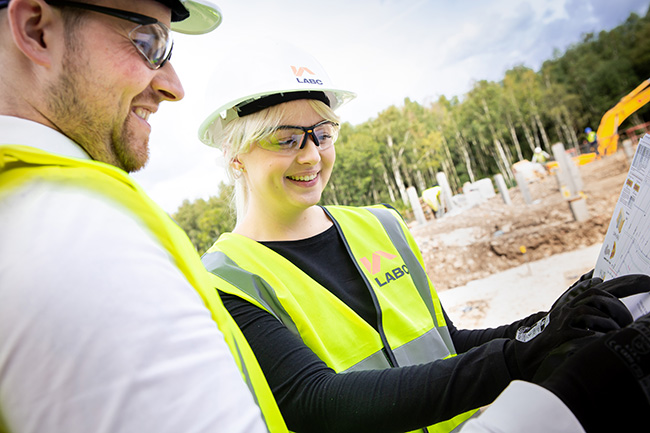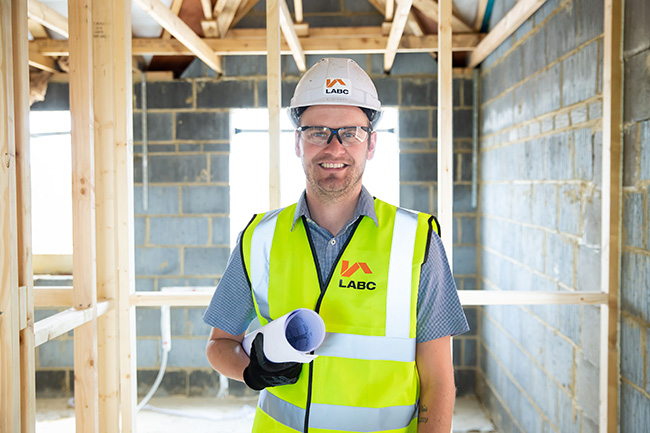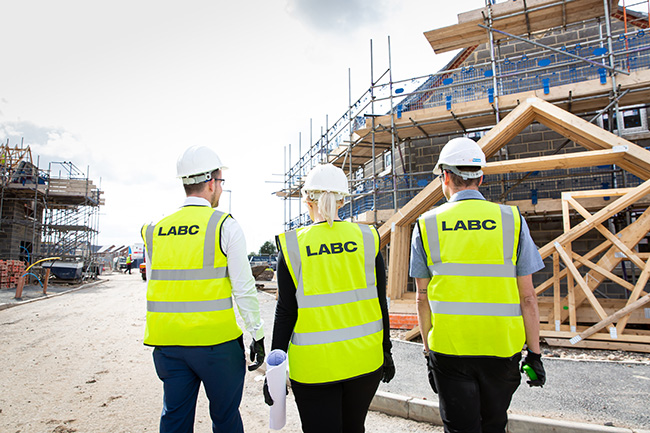Whether you’re starting your career or looking to change profession, it can be difficult to decide which route to take. Here we give some insights into what a building control job involves, the skills needed and what you can get out of it.
We also outline the main roles within building control, showing how your career could progress.
What is a building control job like?
It’s the perfect mix between on-site and office-based work and there is plenty of variety. You could be involved in a range of projects, from small residential extensions or loft conversions, through to new builds and major commercial developments like the London Shard (depending on your experience). The role typically involves:
- Helping people to understand and comply with both their legal and technical responsibilities as set out in the building regulations.
- Working with many different people, from technical experts, builders and other construction professionals, through to householders and other agencies like the fire and rescue services.
- Getting involved at all stages of the construction process – from before building starts to final sign-off.
- Great responsibility. Depending on your experience and knowledge you may need to deal with dangerous structures and enforcement cases. And your job will always help ensure buildings are safe and fit for purpose.
Visit our blog for real-life examples of building control staff and why they love their job
What qualifications do you need to start with?
Ideally, you’ll be educated to A-level standard, but for some roles you may only need (a minimum of) 5 GCSEs, grade A* - C (including Maths and English) or B tech equivalents.
Alternatively, you could have started an apprenticeship in a construction, engineering or property-related discipline. Or you may have experience and qualifications in related fields such as fire safety.
You can start a career in building control at any age. Even previous experience in completely different career paths means you already have relevant transferrable skills, so don’t let lack of experience deter you.
For more information on courses, visit our Qualifications page
What skills and attributes do you need?
A can-do attitude is key, as you’ll work on all sorts of projects, from residential buildings to complex projects like shopping centres or stadiums as your career progresses. You’ll also need to be technically minded and detail orientated, with the ability to spot issues and come up with solutions.
Great communication skills will help you develop and nurture relationships – whether that’s providing advice to homeowners or working with construction professionals to make sure buildings are compliant.
Being happy to work both independently and within a team will mean you’ll thrive whether you’re out inspecting a site, or in the office working with colleagues.
An affinity for maths and computer literacy is also an advantage.
See our post on the top ten skills needed for a career in building control
What are the benefits of working as a building control surveyor?
- No two days are the same – if you like variety, this is a great career for you.
- It’s not just a desk job. It’s a mixture of office and site inspection work.
- Flexibility and work-life balance. While this varies from council to council, there may well be the option to work flexibly and from the office/home.
- Local authority pension and competitive salary.
- Great teams and knowledgeable senior staff to learn from, plus staff training schemes.
How and where can you start?
Many local authority jobs advertised are career-graded, which means it’s possible to join the team with little or no experience and develop your career in building control at the same time as gaining your qualifications.
In this scenario, you study while working to gain a degree and full membership of a relevant professional body.
View the Qualifications page on the LABC website
How would your career progress?
Your career in building control could develop through the following roles:
- Technical support/support officer
- Apprenticeship
- Trainee or Assistant Building Control Surveyor
- Building Control Surveyor
- Senior Building Control Surveyor/Building Control Manager
- Head of/Chief Building Control/ Principal Building Control Manager
Coming off the tools or from the private sector into the public? Starting out on your career and looking for an admin role?


